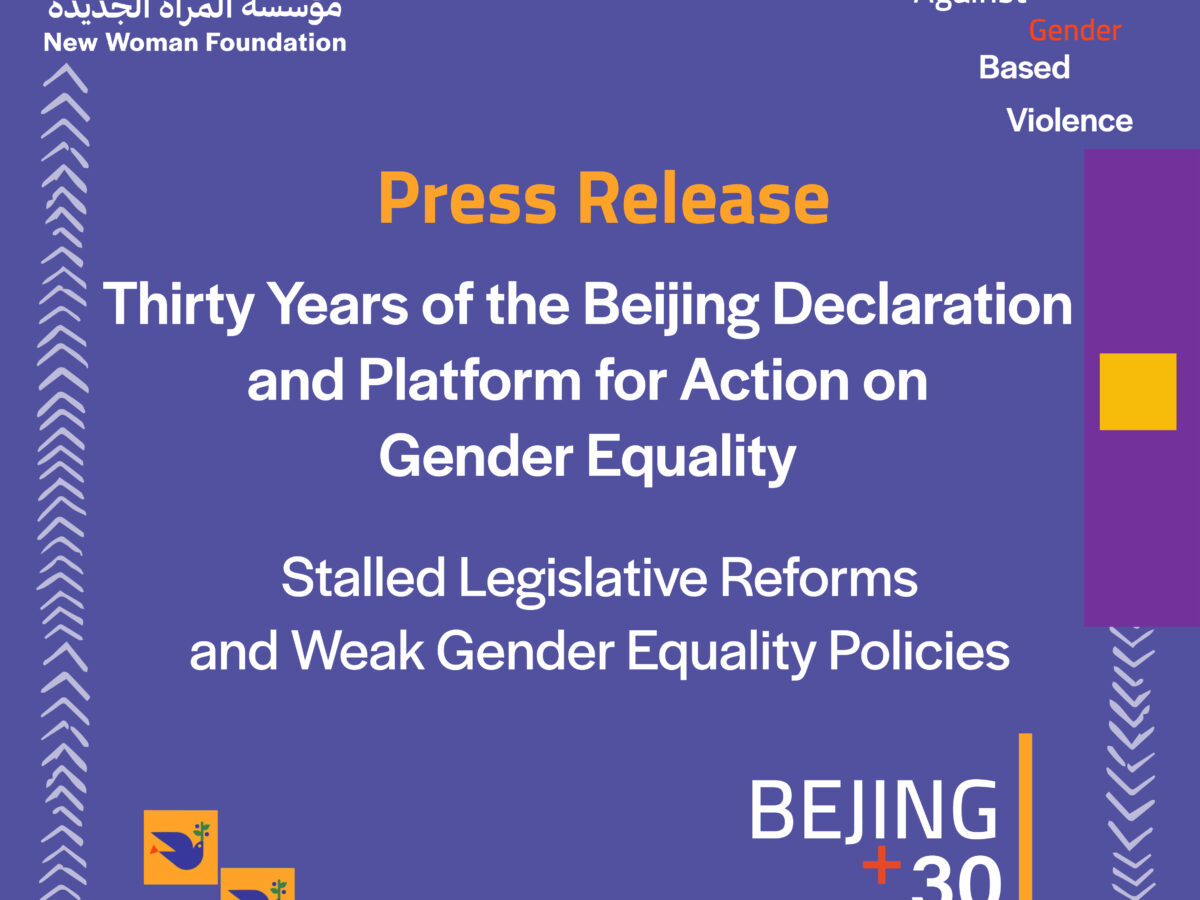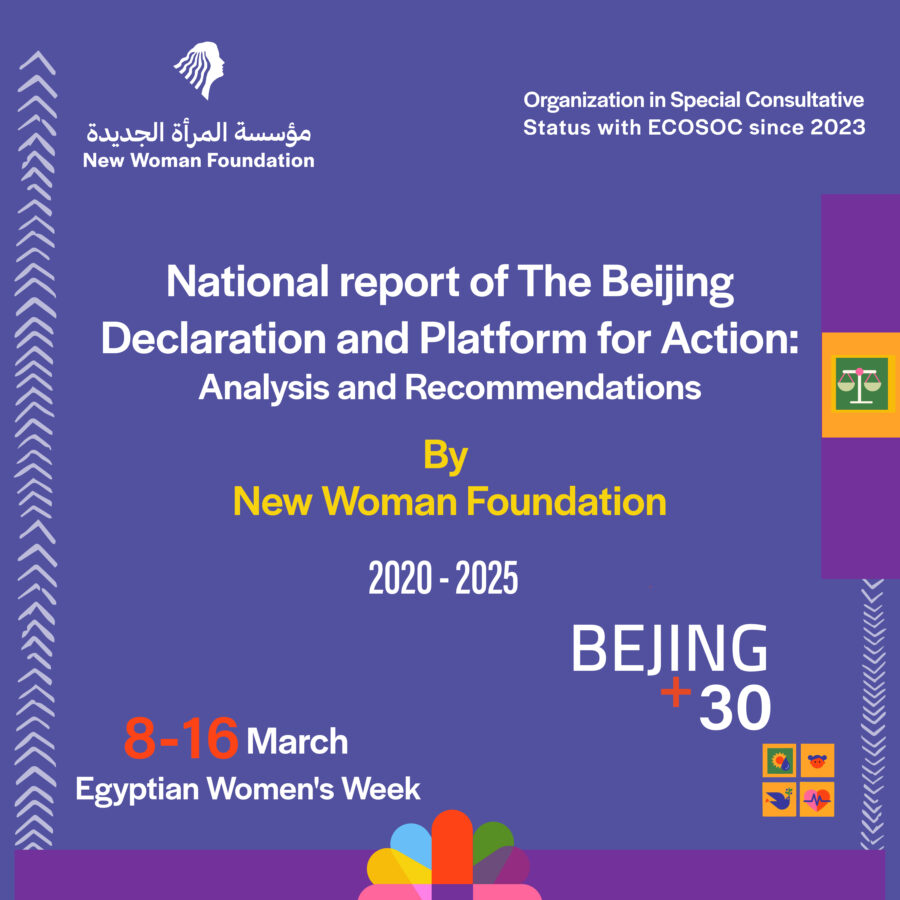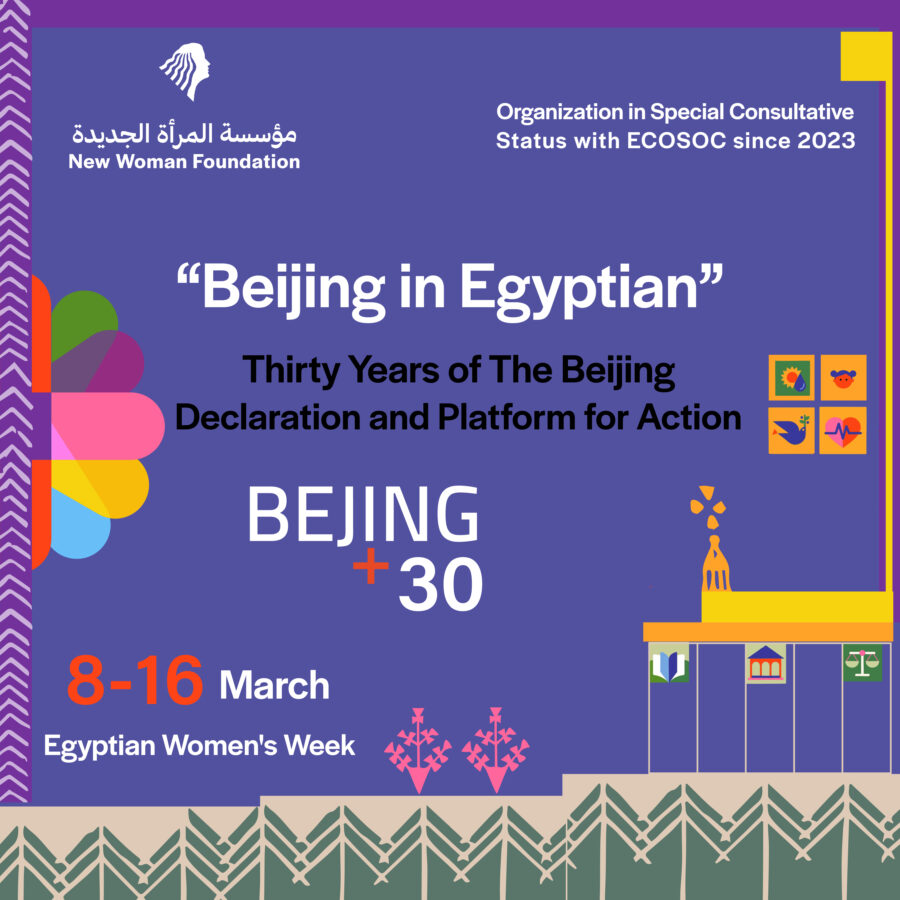- Contact Us
- 0020233382706
- nwrc@nwrcegypt.org
16 Days of Activism: Thirty Years of the Beijing Declaration and Platform for Action on Gender Equality

Structural changes within the New Woman Foundation
July 9, 2024
Case Management Systems and Service Provision for Survivors of Violence
December 3, 2024Press Release for the 16 Days of Activism against Gender-Based Violence
Thirty Years of the Beijing Declaration and Platform for Action on Gender Equality
Stalled Legislative Reforms and Weak Gender Equality Policies
This year marks thirty years since the launch of the Beijing Declaration and Platform for Action to achieve gender equality. However, international reports this year reveal a widening gender gap, especially in the areas of protection against violence in both private and public spheres, deteriorating labor and economic conditions for women, and rising rates of feminized poverty.
Egyptian women are deeply affected by these global challenges, with international reports highlighting significant setbacks in gender equality indicators. According to the Central Agency for Public Mobilization and Statistics (CAPMAS), the unemployment rate among women is four times that of men. Egypt ranks among the lowest globally for women’s participation in labor and economic activities, sitting at 175th out of 190 economies. This ranking reflects deteriorating conditions for women in both public and private spheres, including labor markets, wages, personal status laws, and protections against violence.
To this day, Egypt lacks a gender-sensitive unified labor law for both formal and informal workers. This has left a significant proportion of women exposed to exploitative labor conditions that fail to meet standards for decent work, while an even larger segment remains without legal protections in unpaid domestic labor. Laws also continue to overlook the rights of female agricultural workers and women in caregiving roles.
The same stagnation is evident in laws addressing violence against women in both public and private spheres. Over the past five years, cases of femicide and cyber violence have gained public attention, alongside other traditional and modern forms of violence. Yet, there is still no unified law to combat violence against women, no updated personal status law, and no legislation criminalizing child marriage.
Women’s political participation in parliamentary councils reflects systemic shortcomings in the electoral process, which fails to foster equal competition among diverse female candidates. The absence of gender-sensitive amendments to the political rights law undermines women’s ability to vote and run for office freely, free from hate speech, incitement, or political funding pressures. Ten years after the adoption of the current constitution, no steps have been taken toward enacting comprehensive anti-discrimination legislation or establishing an anti-discrimination commission.
International reports point to weaknesses in public policies addressing gender equality. Women’s access to basic public services, such as safe transportation, secure workplaces, and childcare programs, remains limited, therefor hindering their participation in the labor market. Services tailored to combat violence against women are insufficient, with limited safe shelters and overly complex legal pathways obstructing women’s access to justice.
Media policies, both general and sector-specific—such as those in sports and public services—also lack gender sensitivity. Statements by certain sports federations, such as those for fencing and boxing, reflect a poor understanding of gender equality principles in athletics. Similarly, the recent description of women’s informal and freelance labor by the Passport Authority as “lower categories” reveals ongoing bias. Excluding thousands of qualified female teachers from employment opportunities due to obesity or insufficient athletic activity constitutes blatant discrimination against women in public life and the workforce.
This reality highlights the urgent need for impactful legislative reforms, robust enforcement mechanisms, and the adoption of effective policies to ensure genuine gender equality and equal opportunities for women.
References:
World Bank, Women, Business, and the Law 2024 – Egypt



